Latest from our Labs: Parallel-pixel SNSPDs for Ultrafast and Photon-Number-Resolved Detection
Working in Parallel
Standard superconducting nanowire single-photon detector (SNSPD) designs can only detect the presence or absence of photons, and their performance is limited by the photon pile-up effect, often limiting their performance to detection rates of tens of MHz at best.
An innovative solution is found in the parallel-pixel detectors of IDQ’s ID281 Superconducting Nanowire Series. In these devices (patent pending), an array of SNSPDs are connected in parallel to a single readout circuit. Here, single photons are much less likely to pile up at one pixel, and more than one photon can be resolved in a single detection event. All while benefitting from SNSPDs’ near-ideal detection efficiency, unparalleled timing precision, ultra-low noise, and broadband operation, and the ID281’s true latch-free operation.
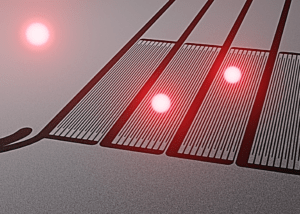
Photon-number-resolved detection
Discriminate up to 8 photons at a time with each 8-pixel ID281 detector (also available in a 4-pixel design), with up to 16 such detectors in a single ID281 system.
Paired with the picosecond-precise time-tagging and advanced coincidence filtering of the ID1000 Time Controller Series, users can easily characterize the photon-number statistics in their experiments and applications, and even perform single-shot rejections of unwanted multi-photon events.
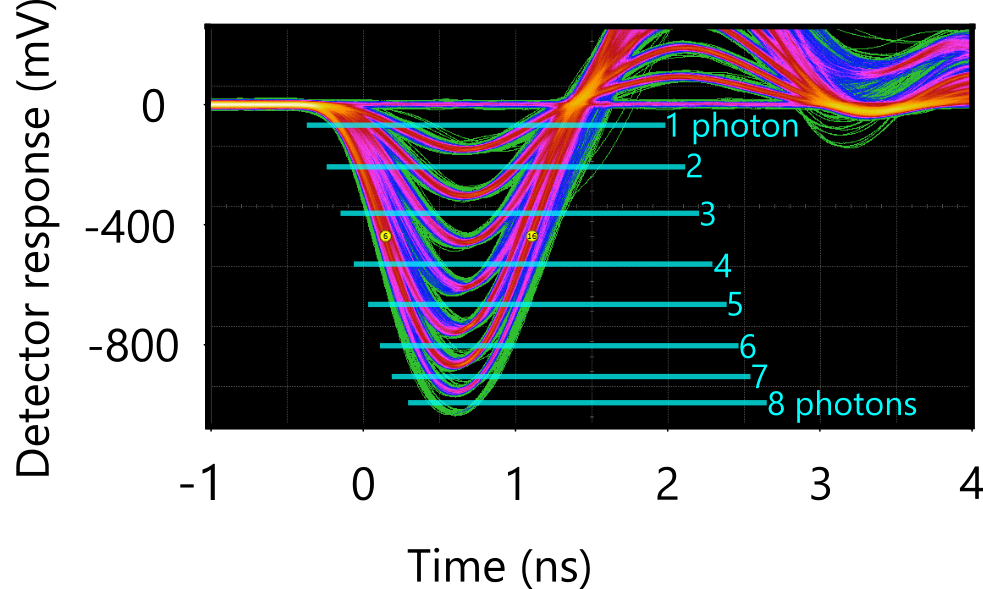
Excellent for use with ultra-precise LiDAR, high-performance single-photon sources and photonic quantum computing applications.
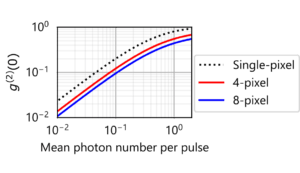
Ultrafast single-photon detection
Count photons faster than ever before! With these parallel-pixel SNSPDs, IDQ have demonstrated huge improvements in the maximum single-photon detection rate over standard SNSPDs, comfortably achieving recovery times below 10 ns while maintaining true latch-free operation. Ideal for quantum information applications with single-photon rates between 10 MHz to 50 MHz and beyond.
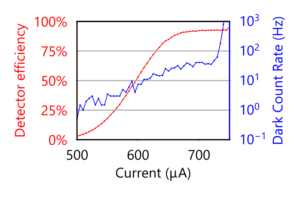 Figure 2: System Detection Efficiency (SDE), Dark Count Rate and Recovery Time measurements from a single example 4-pixel ID281 SNSPD.
Figure 2: System Detection Efficiency (SDE), Dark Count Rate and Recovery Time measurements from a single example 4-pixel ID281 SNSPD.
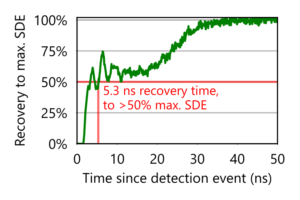 Figure 3: Recovery time measurement for the same 4-pixel SNSPD, the time taken for the detector to exceed and stay above 50% of its maximum SDE subsequent to a detection event.
Figure 3: Recovery time measurement for the same 4-pixel SNSPD, the time taken for the detector to exceed and stay above 50% of its maximum SDE subsequent to a detection event.
Find out more
Talk to us today to find out more about our new and upcoming additions to our range of SNSPDs and photonic sensing instrumentation.
Visit www.idquantique.com, or send a message to info@idquantique.com.
Related products


